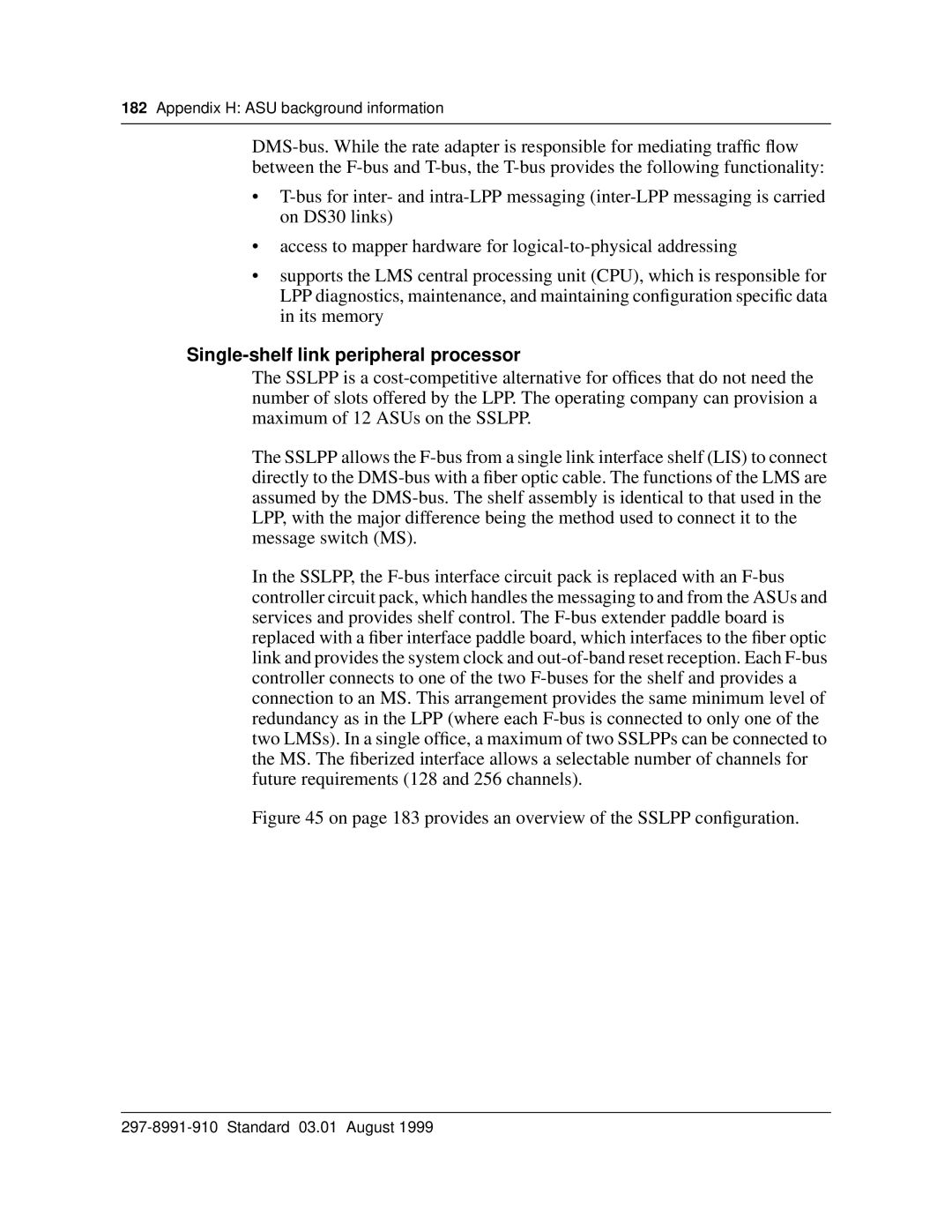
182Appendix H: ASU background information
•
•access to mapper hardware for
•supports the LMS central processing unit (CPU), which is responsible for LPP diagnostics, maintenance, and maintaining configuration specific data in its memory
Single-shelf link peripheral processor
The SSLPP is a
The SSLPP allows the
In the SSLPP, the
